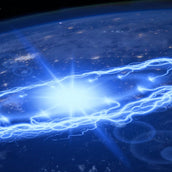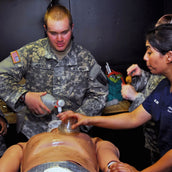
Survival Response for Natural Gas Emergencies
Natural gas provides better living standards as it is a cleaner and cheaper energy source. It has several applications, from cooking to heating water, etc. It may have several benefits, but at the end of the day, it is a combustible gas with the serious potential to cause injuries and deaths.
Natural gas is lighter than air and can easily have uncontrolled releases that are called natural gas emergencies.
Survival Response for Natural Gas Emergencies
Whenever there is a natural gas emergency, you need to work quickly with your survival response, as a slight mistake can lead to injury or death of several individuals. If you ever face a natural gas emergency, here are the steps you need to follow to keep yourself and everyone else safe.
Identify if you have a leakage.
Natural gas is usually supplied using underground pipelines. These pipes are more secure than other pipes because of their structural strength. However, there are cases when these leaks create a natural gas emergency. So, if you suspect such happening at your place, you need to identify the signs first.
- Clear signs of gas leakage
First, you need to look for clear signs of leakage. These signs include:
- The smell of natural gas is very similar to the smell of rotten eggs
- Blowing, hissing, or whistling sound
- Bubbling near flooded areas on the floor
You may find one of many of these signs at once that may indicate that you have a leakage at your place.
- Dead vegetation
If you suddenly see a patch of dead vegetation, it could signify that you have a natural gas emergency at your place. If everything is green and good around, but a specific part of the land has dead vegetation, you can be surer.
- Identification using equipment
The last resort is to use the combustible gas indicator. It is a device that helps detect the presence of natural gas at your place. Everyone may not be able to use it. As professionals have better knowledge and experience in using such equipment, it is better left to them.
Bonus Tip:
Are you unable to verify any of these sounds, but you have a gas meter that keeps running even when all the appliances are turned off? It can clearly signal gas leakage that may cause natural gas emergencies.
Identify the safe and unsafe areas.
Natural gas can be ignited with a flame, spark, doorbell, or telephone. It is not toxic, but it can result in suffocation. Additionally, if burnt in the absence of oxygen, it may create carbon monoxide (CO), a deadly gas that results in instant death. To stay safe from all this happening, it is better to identify the safe and unsafe areas. Here are a few characteristics of the safe areas:
- The areas where there are no gas appliances nearby
- A place with no gas pipelines nearby is the safest
- If you have a strong smell of gas inside, then the rooms with better ventilation are safe.
- Gas leaking inside and no ventilation in your place make outdoors the safest place to stay.
Similarly, you can identify all the unsafe areas considering the higher chances of creating a fire. As you identify the safe and unsafe areas, staying away from them is better.
Take control of the place and do all the precautionary measures
After identifying safe and unsafe areas and the presence of a natural gas emergency, you need to take control of the place. It is necessary to go through all the precautionary measures, including:
- Turning off all the appliances
First, you must turn off all the appliances that can cause a spark. There could be several reasons for creating a spark, so the best practice is to cut off the electrical supply to that area by turning off the circuit breaker. Make sure that nobody uses a flashlight, as turning it on can also cause a fire.
- Turning off the supply of gas if possible
Your next step will be turning off the supply of gas. It can make things much safer. The best option is to turn off the main valve of gas that supplies gas to your place. However, sometimes, more is needed if the leakage was before that valve.
- Evacuating everyone from the building safely.
Now you must safely evacuate everyone from the building or the unsafe portions. Make sure that everyone stays calm and that you safely and quickly evacuate them.
- Work on the ventilation of the place
Use ventilation to your benefit. Close all the doors and windows towards the safe areas to restrict natural gas from entering. Similarly, open all the ventilation pathways so the gas can go out.
Immediately call the professionals to rescue
Lastly, you need to call the professionals when the place is ready for them to work. Call the nearest gas officials and report the natural gas emergency. With the right technique and equipment, they can easily resolve the issue as quickly as possible. Leave everything up to the professionals now and calmly wait.
Bonus Tip: Things that you need to refrain from at all costs
While clearing the place, you may come up with certain ideas that may sound safe but need to be revised. You need to refrain from a few things at all costs, including the following.
- Investigate the leakage yourself
- Try to repair the leakage yourself.
- Individually turning off appliances using switches near the place with a high gas concentration in the air.
- Staying near the leakage before professionals arrive
- Trying to block or close the leakage temporarily by any means
Do everything to keep your place and people safe but never go for the things listed here. Refraining from these will increase your safety, while a slight mistake while trying to attempt these yourself will make things more dangerous.
Conclusion
Natural gas emergencies can be devastating because a slight mistake can result in destruction. However, dealing calmly with the situation while following your survival instinct can keep everyone safe. So, if you are also looking to stay prepared for natural gas emergencies, keep these steps in your mind, and you will reduce the maximum chances of something disastrous happening.
Image by Łukasz Dyłka from Pixabay
Share this article








